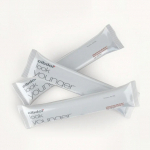Why collagen can make you feel sleepy
Published:
Categories: CollagenCollagen supplements have become increasingly popular in recent years, with people taking them for benefits like improving skin health, joint health, and even sleep. However, some people have reported feeling unexpectedly sleepy or fatigued after taking collagen. So what's the reason behind this drowsiness that collagen can cause for some? Let's take a closer look.
Contents:

What Is Collagen and How Does It Work?
Collagen is the most abundant protein in the human body, making up around 30% of total protein content. It's the main structural protein that provides strength and flexibility to connective tissues like skin, tendons, ligaments, cartilage, bones, blood vessels, and even teeth.
Collagen is mostly found in fibrous tissues and is composed of amino acids like glycine, proline, and hydroxyproline. It's constantly being broken down and regenerated in the body. As we age, collagen production slows down leading to common signs of aging like wrinkles, joint pain, and weakened bones and muscles.
Supplemental collagen aims to provide the amino acids needed to support the body's own collagen production. Most collagen supplements are hydrolyzed, meaning the collagen proteins are broken down into smaller peptides for better absorption. Popular sources are bovine, marine, or egg shell collagen.
Supplementing with collagen can increase collagen content in connective tissues and provide various wellness benefits. But it also has effects on brain chemistry that might explain why some people get drowsy.
Why Collagen Supplements May Cause Drowsiness
There are a few potential reasons why collagen supplements may induce sleepiness or drowsiness in some individuals:
1. High Glycine Content
Collagen is uniquely high in the amino acid glycine, making up about 33% of collagen's total amino acids. Typical collagen supplements provide around 10-20 grams of glycine per serving.
Glycine acts as an inhibitory neurotransmitter in the brain that can have calming effects. It's also involved in the synthesis of serotonin, a key sleep-regulating hormone. The boost in glycine from collagen can increase serotonin levels and have a mild sedative effect for better sleep.
However, individuals have varying degrees of sensitivity to glycine's effects. Those more prone to drowsiness may feel this effect more strongly after taking collagen supplements.
2. Increase in Tryptophan
Glycine has also been shown to help raise levels of the amino acid tryptophan in the brain. Tryptophan is a precursor for serotonin production and also has natural sleep-inducing effects.
Higher tryptophan levels along with glycine's direct role in serotonin synthesis is likely another way collagen can promote better sleep and relaxation. But again, this can make some individuals feel overly tired during the day.
3. Effects on Melatonin Secretion
The amino acid content in collagen, including glycine and proline, may also stimulate the release of melatonin. Melatonin is the body's sleep hormone that regulates circadian rhythms and induces drowsiness at appropriate times.
Studies suggest that specific amino acids can increase endogenous melatonin levels at night. Collagen peptides taken earlier in the day may enhance melatonin release later on and shift people's sleep-wake cycles.
4. Blood Sugar Changes
Collagen is a protein and does contain a minimal amount of carbohydrates. It's also often taken with vitamin C to improve absorption. For some individuals, this combination on an empty stomach may alter blood sugar levels and cause sleepiness after taking it.
Those prone to blood sugar swings or reactive hypoglycemia could feel fatigued and need to nap after taking collagen supplements in the morning or mid-day.
Tips to Reduce Drowsiness from Collagen
If you are experiencing unwanted drowsiness or fatigue after taking collagen supplements, there are a few things you can try to help minimize this side effect:
- Take collagen at night - Since collagen can enhance sleep and relaxation, taking it about an hour before bedtime is ideal. This allows you to benefit from its sleep-promoting effects rather than feeling drowsy during the day.
- Lower your dosage - Try reducing your collagen dosage to 5-10 grams per serving and see if a lower amount helps prevent daytime sleepiness. You can also try alternating days rather than taking it daily.
- Have it with food - Consuming collagen along with carbs or protein can help stabilize blood sugar changes that contribute to energy crashes.
- Stay hydrated - Drink plenty of water throughout the day while using collagen supplements to stay energized. Dehydration can worsen fatigue.
- Avoid other sedatives - Be mindful of combining collagen with other supplements that have sedating properties, like valerian, chamomile, tryptophan, or antihistamines.
- Exercise regularly - Maintaining an active lifestyle can counteract collagen's inherent drowsiness. Exercise gives you more energy, elevates your mood, and makes you less prone to fatigue.
- Get enough sleep - Make sure you're regularly getting 7-9 hours of quality sleep per night. Proper sleep will help you feel well-rested overall and offset daytime sleepiness.
When to See a Doctor
For most people, the mild sedative effects of supplemental collagen are not cause for concern. However, if you're experiencing excessive, uncontrollable drowsiness that is impacting your daily life, consult your healthcare provider.
See your doctor if collagen-related fatigue is accompanied by other symptoms like lightheadedness, headache, nausea, mental confusion, blurred vision, heart palpitations, or numbness. These could indicate an allergic reaction, hormone imbalance, or underlying condition.
It's also important to rule out medical issues like clinical sleep disorders, thyroid disorders, anemia, depression, diabetes, or effects of prescription medications. Your doctor can help determine if collagen is the cause or if there is another issue requiring treatment.
Some individuals are simply extra sensitive to collagen's amino acid profile and adjustments to dosage or timing can help. But your doctor may recommend stopping collagen altogether if the drowsiness side effects continue and significantly hinder your quality of life.
Summary
Collagen is an abundant protein in the body that provides ample health benefits as a nutritional supplement. However, some of its amino acid components, particularly glycine, act on neurotransmitters in the brain that induce feelings of calmness and sleepiness.
For those prone to drowsiness, collagen is likely best taken at night. Start with a low dose, stay hydrated to avoid blood sugar swings, and be aware of mixing collagen with other supplements or medications that cause fatigue. If daytime sleepiness persists and interferes with work, school, or relationships, consult your doctor to rule out underlying conditions.
While drowsiness is a common side effect, adjust your collagen regimen to find an approach that works well for your body and lifestyle needs. With some trial and error, collagen can still be an asset for overall wellness and its sleep-promoting qualities can be used strategically to enhance nightly rest.
Fact Section
- Collagen is a protein made up of amino acids like glycine, proline and hydroxyproline. It provides structure and flexibility to connective tissues.
- Collagen production declines with age leading to signs like wrinkles and joint pain. Supplements can provide needed amino acids.
- Collagen supplements may cause drowsiness due to:
- High glycine content - glycine is an inhibitory neurotransmitter that enhances serotonin and relaxes the brain
- Increased tryptophan - aids serotonin production
- Melatonin stimulation
- Blood sugar changes
- Those prone to drowsiness may want to take collagen at night, lower dosage, with food, stay hydrated, and avoid other sedatives.
- See your doctor if fatigue is excessive and impacting daily life. They can assess for underlying conditions or allergies.
- Adjusting dose and timing can allow you to benefit from collagen while managing drowsiness side effects.
Why collagen can make you feel sleepy. Conclusion
In summary, supplemental collagen can certainly cause drowsiness in some people due to its abundance of the amino acid glycine and effects on serotonin, melatonin, tryptophan, and blood sugar regulation. Those more prone to fatigue may want to take collagen at night, lower dosages, or adjust timing to minimize daytime sleepiness. While drowsiness is common, see a doctor if it becomes unmanageable to rule out medical conditions. With some personal adjustments, collagen can still be taken advantageously for overall health and targeted sleep-promotion.
Resources used to write this article
Bello, A. E., & Oesser, S. (2006). Collagen hydrolysate for the treatment of osteoarthritis and other joint disorders: a review of the literature. Current medical research and opinion, 22(11), 2221–2232. https://doi.org/10.1185/030079906X148373
Borumand, M., & Sibilla, S. (2015). Daily consumption of the collagen supplement Pure Gold Collagen® reduces visible signs of aging. Clinical interventions in aging, 10, 1747–1758. https://doi.org/10.2147/CIA.S89939
Choi, F. D., Sung, C. T., Juhasz, M. L., & Mesinkovsk, N. A. (2019). Oral Collagen Supplementation: A Systematic Review of Dermatological Applications. Journal of drugs in dermatology : JDD, 18(1), 9–16. https://pubmed.ncbi.nlm.nih.gov/30615188/
El-Hafidi, M., Pérez, I., Baños, G., & Guillamon, A. (2004). Glycine intake increases serotonin synthesis: implications for glycine therapy of depression. Amino acids, 27(1), 35-38. https://link.springer.com/article/10.1007/s00726-004-0150-6
Inagawa, K., Hiraoka, T., Kohda, T., Yamadera, W., & Takahashi, M. (2006). Subjective effects of glycine ingestion before bedtime on sleep quality. Sleep and Biological Rhythms, 4(1), 75-77. https://onlinelibrary.wiley.com/doi/abs/10.1111/j.1479-8425.2006.00193.x
Proksch, E., Segger, D., Degwert, J., Schunck, M., Zague, V., & Oesser, S. (2014). Oral supplementation of specific collagen peptides has beneficial effects on human skin physiology: a double-blind, placebo-controlled study. Skin pharmacology and physiology, 27(1), 47–55. https://doi.org/10.1159/000351376
Shigemura, Y., Kubo, S., Sudo, Y., Kubo, S., & Umishio, K. (2017). Effect of Prolyl-hydroxyproline (Pro-Hyp), a Food-Derived Collagen Peptide in Human Blood, on Growth of Fibroblasts from Mouse Skin. Journal of agricultural and food chemistry, 65(23), 4645–4651. https://doi.org/10.1021/acs.jafc.7b00147
Tanaka, M., Koyama, Y. I., Nomura, Y. (2009). Effects of Collagen Peptide Ingestion on UV-B-Induced Skin Damage. Bioscience, Biotechnology, and Biochemistry, 73(4), 930-932. https://doi.org/10.1271/bbb.80649
Zague, V. (2011). A new view concerning the effects of collagen hydrolysate intake on skin properties. Archivos latinoamericanos de nutricion, 61(2), 192–199. https://pubmed.ncbi.nlm.nih.gov/22081618/
Sign up to our newsletter and enjoy 10% off one order
YOU MIGHT ALSO LIKE
Post related products
-

Look Younger CIBD0073













